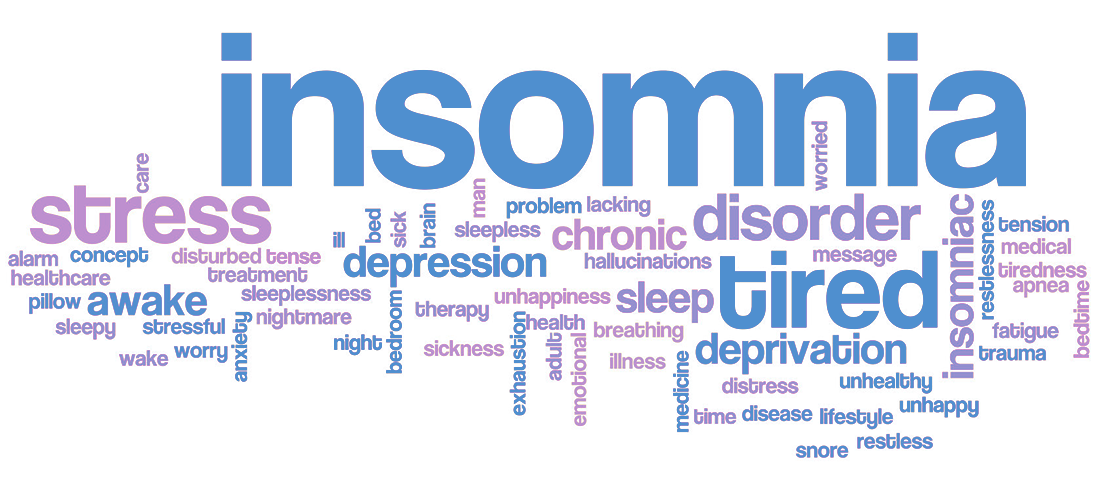What is Insomnia Treatment?
Struggling with sleep is one of the most common issues people bring to therapy. Whether it’s difficulty falling asleep, waking during the night, or feeling unrefreshed in the morning, insomnia can affect nearly every area of life—from mood and concentration to physical health and emotional wellbeing.
Fortunately, effective treatment for insomnia does exist. The most well-supported psychological approach is Cognitive Behaviour Therapy for Insomnia (CBT-I)—a structured, short-term, and evidence-based method that targets the thoughts and behaviours that interfere with quality sleep.
“Insomnia is often maintained by a cycle of worry, unhelpful sleep habits, and frustration,” explains Kathryn Smith, Clinical Psychologist. “CBT-I helps break that cycle and restore sleep in a natural and sustainable way.”
Understanding Insomnia
Insomnia is more than the occasional restless night. It becomes a problem when difficulties with sleep are frequent, last for several weeks or more, and begin to affect daily functioning. People with insomnia often experience:
- Trouble falling asleep
- Waking up during the night or too early
- Light or non-restorative sleep
- Daytime fatigue or irritability
- Worry or fear about not sleeping
What makes insomnia particularly tricky is that the more we try to force sleep, the more elusive it becomes. This creates a paradox: the harder we try, the harder it gets.
What is CBT-I?
CBT-I is a structured, time-limited therapy that usually takes place over 4–8 sessions. It addresses both the behavioural habits and the thought patterns that maintain poor sleep.
Some of the key components include:
- Sleep Education – Understanding how sleep works and what disrupts it.
- Stimulus Control – Strengthening the association between bed and sleep by limiting wakeful activities in bed (e.g., no screens or reading).
- Sleep Restriction – Temporarily limiting time in bed to build stronger sleep pressure and consolidate sleep.
- Cognitive Restructuring – Identifying and challenging unhelpful beliefs about sleep, such as “I’ll never sleep well again.”
- Relaxation Techniques – Breathing exercises, progressive muscle relaxation, or mindfulness to calm the body and mind.
“Many people with insomnia feel they’ve tried everything, but haven’t had support to target the actual patterns keeping the insomnia going,” says Kathryn Smith. “CBT-I offers a clear and personalised roadmap.”
Sleep Hygiene vs. CBT-I
You may have heard of “sleep hygiene” tips like avoiding caffeine before bed or keeping your room dark and cool. While helpful, sleep hygiene alone is rarely enough to resolve chronic insomnia. CBT-I goes deeper by working with the conditioned behaviours and mental habits that underlie sleep issues.
CBT-I is about retraining your brain and body to trust that sleep is safe, achievable, and restorative.
Why Thoughts Matter
People with insomnia often experience a heightened sense of anxiety about sleep itself. Thoughts like:
- “If I don’t sleep well tonight, tomorrow will be a disaster.”
- “I’ll never be able to function unless I fall asleep soon.”
- “Something must be wrong with me.”
These thoughts can trigger stress and arousal, activating the very systems that keep us awake.
CBT-I helps people take a step back from these worry loops and develop a more flexible, compassionate perspective.
“One of the most powerful parts of CBT-I is the shift from fear and control to trust and rhythm,” Kathryn Smith reflects. “When people stop fighting with their sleep, it often begins to return.”
Is CBT-I Right for You?
CBT-I is suitable for adults of all ages and is often recommended as the first-line treatment for chronic insomnia. It’s effective whether insomnia is a stand-alone issue or part of a broader mental health condition like anxiety or depression.
You might benefit from CBT-I if:
- You’ve been struggling with sleep for more than a few weeks
- You feel anxious or frustrated at bedtime
- You’ve tried other remedies without success
- You want a non-medication approach to better sleep
Evidence and Results
CBT-I is backed by decades of research and is considered the gold standard in behavioural sleep medicine. Studies show that it is more effective than sleeping pills in the long term, with benefits that last well after treatment ends.
Most people see improvements within a few weeks, including:
- Falling asleep faster
- Staying asleep longer
- Feeling more refreshed in the morning
- Reduced anxiety around sleep
- Improved daytime energy and focus
Final Thoughts
Sleep is one of the most fundamental pillars of health, and when it falters, everything else can feel harder. The good news is that insomnia is treatable—with the right support and strategies.
“People often come to CBT-I feeling hopeless about their sleep,” Kathryn Smith says. “But once they understand the process and begin making changes, it’s incredible how quickly things can shift.”
If you’re struggling with sleep, consider speaking with a psychologist trained in CBT-I. You don’t have to accept poor sleep as your new normal—restorative, peaceful nights can be reclaimed.
